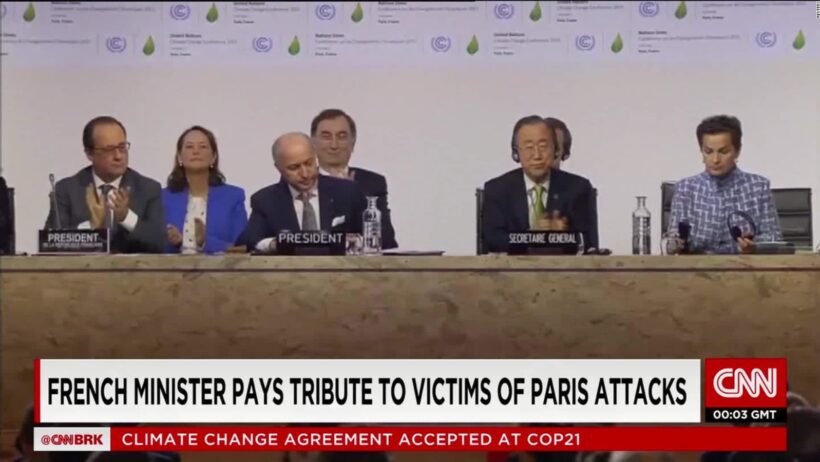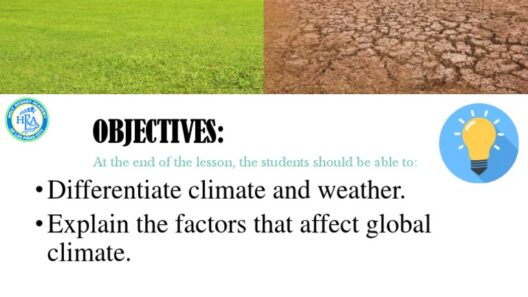The Paris Agreement has been hailed by many as a monumental leap toward global climate action, yet it has also garnered substantial criticism. Detractors argue that the agreement is riddled with limitations that undermine its effectiveness. Understanding the facets of this critique is essential for grasping the broader implications of international climate policy.
Firstly, a prominent contention against the Paris Agreement is its reliance on voluntary commitments from countries, commonly referred to as Nationally Determined Contributions (NDCs). Unlike legally binding targets, these voluntary pledges do not mandate stringent compliance. Critics assert that this approach permits nations to underperform without facing substantial repercussions. The absence of enforceable regulations induces a paradox wherein countries can portray themselves as environmentally responsible while engaging in insufficient remedial action. The inconsistency of pledges creates an atmosphere of complacency, wherein nations may merely pay lip service to climate commitments.
This permissive framework fosters a sense of ambiguity regarding global efforts to mitigate climate change. The Paris Agreement originally aimed to limit global warming to well below 2 degrees Celsius, ideally to 1.5 degrees above pre-industrial levels. However, critics emphasize that the current NDCs are insufficient to achieve these ambitious targets. Many argue that the collective commitments fall short of the scale necessary to combat the escalating threats posed by climate change. Moreover, this discrepancy between stated aims and actual efforts raises questions about the sincerity of global leadership. Are nations genuinely earnest in their quest for sustainability, or are they merely engaging in political theater?
Another point of contention is the disparity in commitments by developed and developing countries. Critics highlight that the Paris Agreement places a disproportionate burden on developing nations, often compelling them to curb their emissions while developed countries receive more leeway. This perceived inequity fosters a sense of grievance, particularly among nations that have historically contributed less to global emissions yet are the most vulnerable to climate impacts. Developing countries argue that they require room to grow economically, which inherently involves increased emissions. The double standard inherent in this approach leads to skepticism regarding the overall fairness and viability of global climate governance.
Furthermore, the financial mechanisms envisioned within the Paris Agreement also face scrutiny. Despite the pledge to mobilize $100 billion a year for climate financing, critics assert that actual funding has been woefully inadequate. Developing nations, which often lack the resources to invest in clean technologies or adaptation strategies, may find themselves marginalized in global climate dialogues. The financing gap not only stifles progress but also instills a sense of abandonment in those nations that are disproportionately affected by climate change but are least equipped to respond.
The concept of “climate justice” is particularly salient within this critique. Climate justice advocates argue that the burdens of climate change should not fall disproportionately on those who have contributed least to the problem. Instead of addressing the historical emissions of developed countries and their responsibilities, the Paris Agreement’s framework appears to perpetuate existing inequalities. The demand for equity in climate policy is not merely a moral imperative; it is an essential component for fostering genuine global cooperation. Critics argue that without addressing these disparities, achieving meaningful progress becomes an elusive goal.
Moreover, the Paris Agreement’s provisions for “technological innovation” and “market mechanisms” often elicit skepticism. Critics contend that reliance on unproven technologies and market-driven solutions can lead to a “business as usual” mentality. The emphasis on innovation may distract from immediate and necessary action to reduce emissions. It raises questions about whether the focus on future technologies detracts from the pressing need to implement existing sustainable practices. In this view, the reliance on the promise of yet-to-be-developed technologies can hinder the urgency needed to address the climate crisis effectively.
Additionally, the Paris Agreement has been criticized for its lack of transparency and accountability mechanisms. Stakeholders argue that the insufficiency of robust review processes renders it difficult to assess progress on climate commitments effectively. Without rigorous monitoring and evaluation, it is challenging to ascertain whether nations are genuinely adhering to their commitments. This opacity contributes to the prevailing skepticism surrounding the credibility and efficacy of international climate agreements.
Furthermore, the issue of fossil fuel dependency remains a significant hurdle. Critics assert that while the Paris Agreement acknowledges the need to transition away from fossil fuels, concrete measures to phase them out are notably absent. The continued investment in fossil fuel industries by both public and private sectors undermines the spirit of the agreement. Critics argue that to achieve meaningful change, there must be a concerted effort to divest from fossil fuels and redirect investments toward renewable energy sources. The persistence of fossil fuel development presents not only a significant challenge but also an existential threat to the goals established by the Paris Agreement.
In conclusion, while the Paris Agreement is often heralded as a progressive step in the fight against climate change, it is vital to recognize the myriad criticisms levied against it. The reliance on voluntary commitments, the disparities in obligations, the inadequacies in financing, and the potential obscurity in accountability all pose substantial challenges to its efficacy. As global temperatures continue to rise and climate-related disasters become increasingly prevalent, it is imperative to confront these criticisms head-on. A transformative shift in perspective may be necessary to reshape international climate policy, ensuring it is equitable, effective, and truly cognizant of the urgency of the climate crisis.








